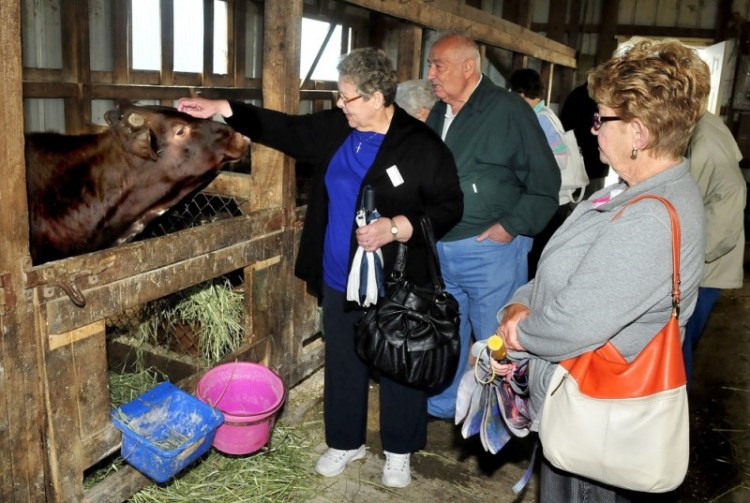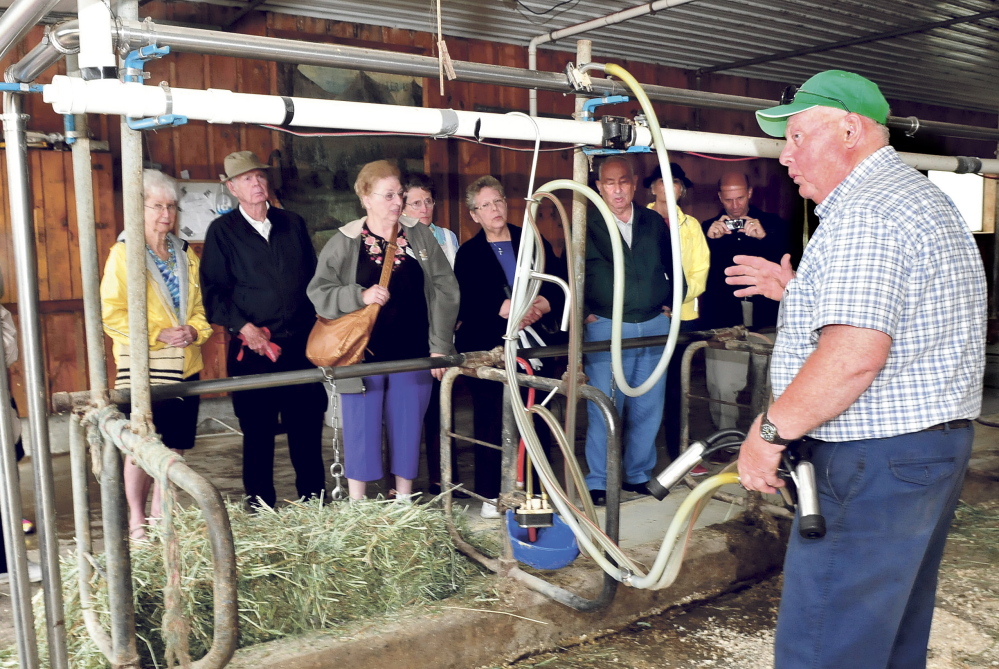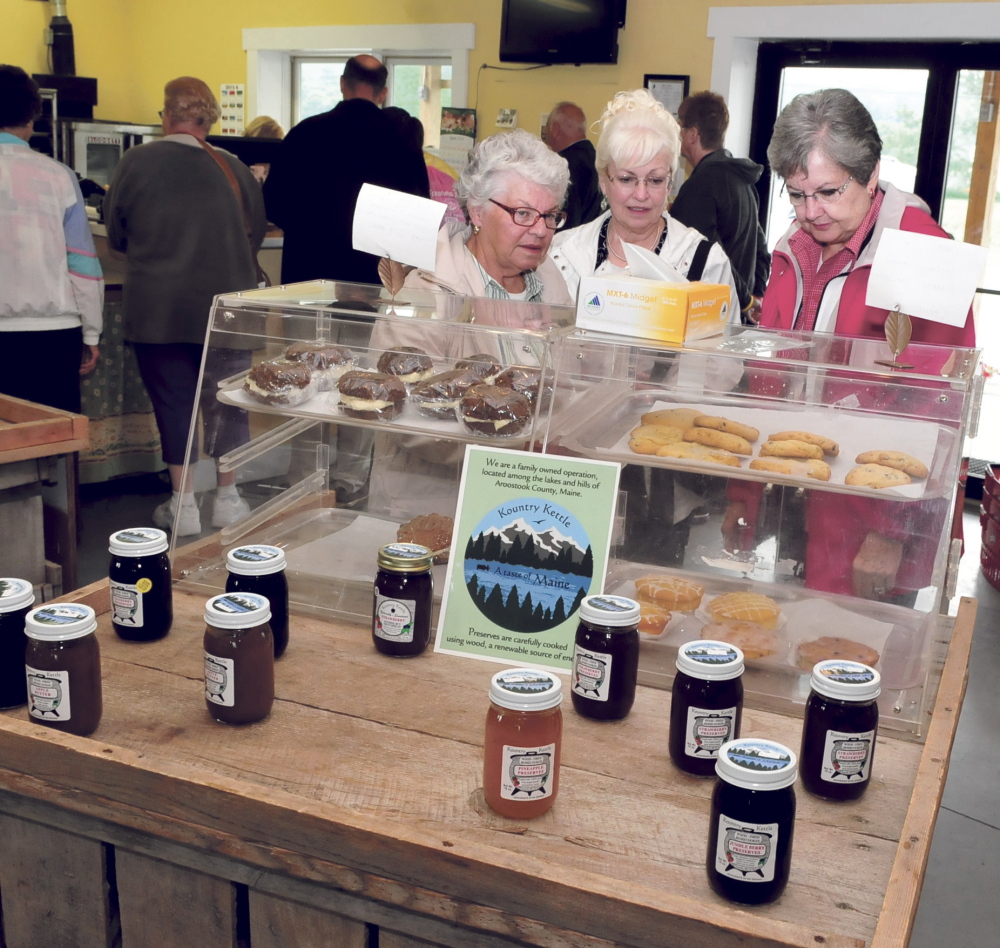Between a visit to the White Mountains of New Hampshire and a nature walk around Acadia National Park, a group of tourists on a guided tour of New England with a Maryland bus service stopped by a dairy farm in Farmington to snap photos of baby cows and sample homemade ice cream.
The tourists were welcome guests of Bussie York’s Sandy River Farm. The visit came after years of York trying to gain a foothold in agritourism – bringing outsiders to the farm for agriculture-related activities.
“I was just interested in why they would want to come tour a farm,” York said as the tour bus loaded back up Wednesday afternoon.
The tourists with Rill’s Bus Service stopped at the Route 2 dairy farm as part of a New England summer getaway tour. The group of mostly senior citizens said they weren’t specifically looking for a tour that went to a farm, but many said they enjoyed the stop and were surprised by what they learned.
“That was so interesting,” said Judy Wood, following a question-and-answer session with York about milking. “He was telling us 25 gallons of milk makes 50 gallons of ice cream. They try to make what they can with milk products like butter, cream, ice cream.”
This sort of blending of learning and recreation at farms is a marketing method that more farmers are trying, said John Rebar, executive director of the University of Maine Cooperative Extension. He said the extension educator Richard Brzozowski has been holding workshops specifically to teach farmers about agritourism and has been getting a good response.
“Tourism is our state’s largest industry. We have Vacationland on the license plate. … Linking it to one of our more traditional parts of our economy makes a lot of sense,” he said.
Agritourism can lead farmers to new sources of revenue and help them engage with customers in a new way, said Rebar.
But opening the gates to the farm to tourists might not be for everybody.
“There’s insurance issues, liability issues. You have to be a real people person and if you’re a quiet farmer maybe agritourism isn’t the kind of thing for you,” he said. “But for some folks it’s a major part of their farm revenue.”
This farm tour wasn’t the first time York engaged in agritourism. He’s been experimenting with his farm for years, adding a corn maze, opening a farm store and branching into raw milk.
The bus tour stop, however, was a first, and York was just as curious why the visitors came as they were about running the farm.
The visitors continued to follow up with questions well after he gave his formal tour of the barns.
How is milk organic? What do the cows eat? Do you milk your cows two or three times a day?
“Our biggest increase in sales is raw milk,” York said.
He told the visitors that in Maryland, where most of the tourists were from, “raw” unpasteurized milk is illegal but in Maine farmers can sell it with a license.
Along with answering questions about how the farm functions in the community, York talked of Farmington’s small-town culture, relaying a story about how local residents reached out to help when his barn burned down 20 years ago.
York told the tourists that about 300 to 400 community members came out to help him rebuild over two weekends in November, and showed them photos of the destroyed and the rebuilt barn.
“They brought their hammers and we furnished the nails,” he said. “That’s the kind of community we got.”
Send questions/comments to the editors.





Comments are no longer available on this story